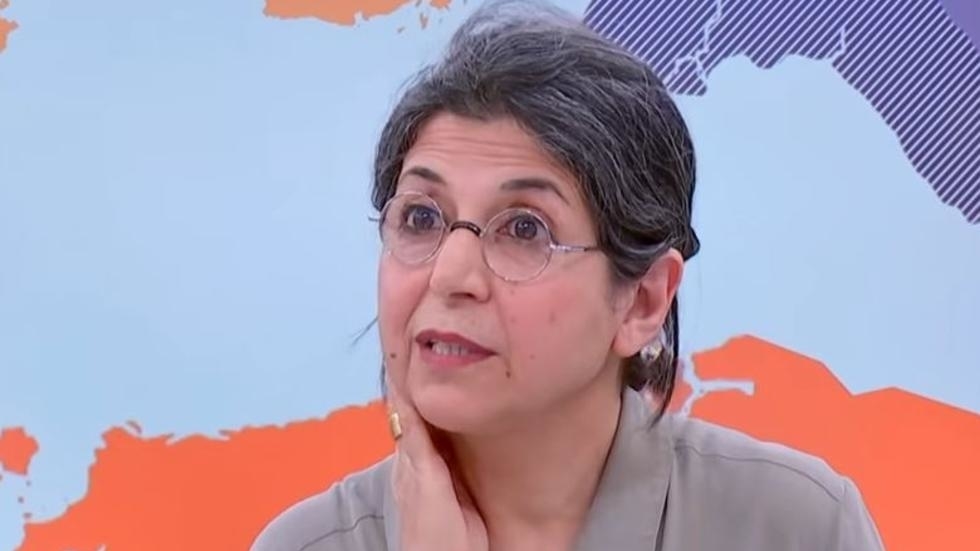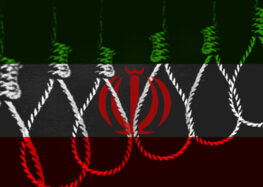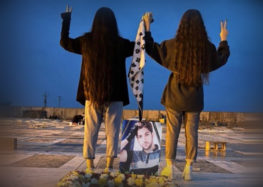French-Iranian Academic’s Five-year Prison Sentence Upheld on Appeal
 French Government “Condemns” Unjust Decision Against Fariba Adelkhah
French Government “Condemns” Unjust Decision Against Fariba Adelkhah
The five-year prison sentence of French-Iranian academic Fariba Adelkhah, held at Evin Prison since June 2019 on manufactured national security charges, has been upheld by the Appeals Court in Iran.
Iranian Judiciary spokesperson Gholam-Hossein Esmaili said at a June 30, 2020 press conference:
“Our lower court had previously issued a verdict regarding this case and now… the Appeals Court has upheld the ruling against her regarding committing security crimes through assembly and collusion against national security and she must endure five years in prison. She has also been sentenced to a year and a half in prison for another conviction but according to [Article 134] regulations only the maximum punishment of five years will be enforced, minus time in detention.”
A French foreign ministry press briefing on June 30, 2020, included the following remarks on the decision:
“We condemn this decision by the Iranian authorities who persist in detaining Fariba Adelkhah despite the lack of any serious evidence or established fact, for exclusively political purposes. We remain determined to obtain the release of our compatriot.
“As Minister for Europe and Foreign Affairs Jean-Yves Le Drian said on June 5, this continuing situation can only have a negative impact on bilateral relations between France and Iran and substantially reduces trust between our two countries.”
On May 16, 2020, Adelkhah’s lawyer, Saeid Dehghan, announced that Branch 15 of the Revolutionary Court had sentenced Adelkhah, 61, to five years in prison for “assembly and collusion against national security” and one year for “propaganda against the state.”
In response, French president Emmanuel Macron tweeted on June 5, 2020:
“One year ago, Farida Adelkhah was arbitrarily arrested in Iran. It is unacceptable that she is still in prison. My message to Iranian authorities: justice demands that our compatriot be immediately released.”
French Minister for Europe and Foreign Affairs M. Jean-Yves Le Drian stated, also on June 5, 2020:
“Over the past year France has continuously mobilized to obtain the release of our compatriot and support her family and close friends. I condemned Iran’s recent decision to impose a six-year prison sentence, which was delivered without any reliable evidence and is political in nature.”
Olivier Duhamel, President of Sciences Po, where Adelkhah worked as a researcher, stated on June 5, 2020:
“Now more than ever, we must redouble our efforts and work tirelessly to support our colleague and friend, by calling for her immediate release. Fariba can rest assured of the support of a huge number of organisations, including the City Councils of Paris and Strasbourg, where she completed her studies… Nobel Peace Prize winner, Ms Shirin Ebadi, has also wished to affirm her support for Fariba’s cause and that of numerous other political prisoners detained in Iran.”
Farida Adelkhah was arrested on June 6, 2019, At the time of her arrest, Adelkhah’s partner and fellow Sciences Po university colleague, Roland Marchal, was also taken into custody by the Islamic Revolutionary Guard Corps (IRGC). He was released on March 23 and allowed to return to Paris as part of a prisoner swap deal.
Iranian prosecutors have used “national security” charges to jail a number of Iranian dual nationals in recent years. Iran’s government says it does not recognize dual nationality but continues to trade dual nationals in prisoner swap deals.
Incarcerated in Evin Prison for over a year, Adelkhah is in good spirits but suffering physically, her lawyer Dehghan said in an earlier interview with the Center for Human Rights in Iran.
“Her morale is very high. She has organized French language classes for the prisoners and was put in charge of the library. But she is not well physically. She has kidney problems and she has difficulty walking.”
Adelkhah is a specialist in social and political anthropology of post-revolutionary Iran and has been a researcher at the Sciences Po’s Centre for International Studies (CERI) since 1993.






